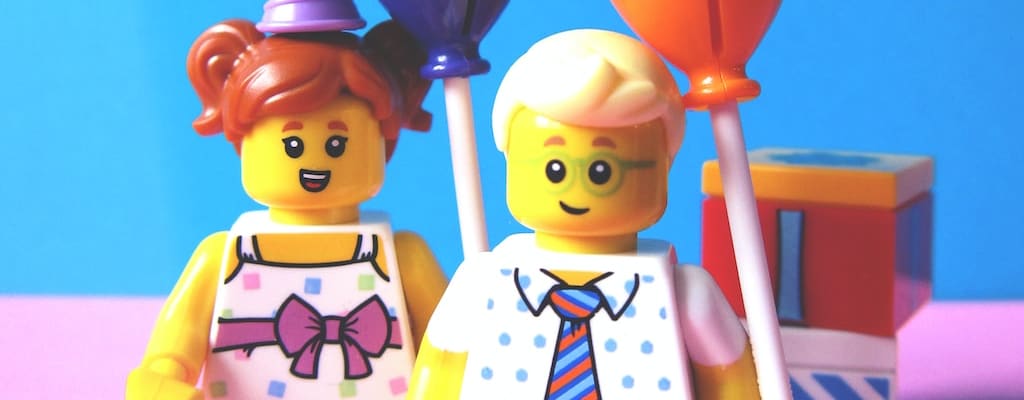have a good time: Idiom Meaning and Origin
What does ‘have a good time’ mean?
The idiom "have a good time" means to enjoy oneself or to have an enjoyable experience.

Idiom Explorer
The idiom "live it up" means to enjoy oneself or have a good time, often by indulging in luxuries or exciting activities. It is often used to encourage someone to make the most of a particular situation or to have a memorable experience.
The idiom "kick up one's heels" means to relax, have fun, or engage in lively enjoyment and uninhibited behavior.
The idiom "kick it" means to relax, have fun, or spend time casually with friends or acquaintances. It often implies a laid-back and informal atmosphere, where one can enjoy themselves without any specific agenda or responsibilities.
The idiom "it's all good" is used to express that everything is okay or there are no problems. It is often used to reassure others or to indicate that there is no reason to be worried or concerned.
The idiom "in the groove" means to be performing exceptionally well or in a state of optimal performance.
The idiom "have it your way" means to allow someone to do or have something exactly as they want, without any compromises or objections from others.
The idiom "have a lot of time for" means to have a great deal of respect or admiration for someone or something.
The idiom "have a laugh" means to find something amusing or entertaining and to enjoy a good laugh or joke.
The idiom "have a good one" is a casual way of saying "have a good day" or "have a good time." It is often used as a friendly farewell or a way to wish someone well.
Unwrapping the Joy
The idiom "have a good time" is a commonly used phrase in the English language. When someone says "have a good time," they are expressing a desire for the person or people they are speaking to, to enjoy themselves and experience a positive and enjoyable experience.
The phrase is primarily used as an imperative sentence, urging someone to engage in activities or events that will bring them pleasure, happiness, or satisfaction. It is often used in social situations, such as parties, gatherings, or outings, where the focus is on enjoyment, relaxation, and having fun.
The idiom can be traced back to the late 19th century when it began to gain popularity in informal discourse. However, its exact origins and etymology are uncertain, as it seems to have evolved naturally within the English language without any specific attribution or documentation.
While the literal interpretation of "have a good time" suggests that it is a command to actively engage in pleasurable activities, in reality, it is more of a polite suggestion or wish for someone's enjoyment. It does not carry any specific instructions or guidelines on how to go about having a good time.
Furthermore, the idiom "have a good time" is highly subjective, as what constitutes a good time varies from person to person. It can range from engaging in exhilarating adventures to simply having a relaxing and stress-free evening.
With its simplicity and universality, "have a good time" has become a colloquial expression ingrained in everyday conversations, with friends, family, and colleagues often parting ways with this well-intended phrase.
However, it is important to note that like many idiomatic expressions, "have a good time" can also be used ironically, such as in situations where someone may be facing challenges or adversity. In these instances, the phrase may be used sarcastically or with a hint of cynicism.
The idiom "have a ball" is closely related to "have a good time" in that they both express a desire for someone to enjoy themselves. "Have a ball" is a more informal and playful way of conveying this wish. It originated in the mid-20th century and is commonly used in casual conversations and informal situations among friends or peers.
Another similar idiom is "have a good one." This expression is often used as a farewell or parting phrase, similar to "have a good time." It is a shorter and more casual way of expressing the same sentiment, wishing someone to have a positive and enjoyable experience.
Lastly, "have a gas" is another related idiom that means to have a great time or a lot of fun. This phrase is more informal and dates back to the 1960s when it gained popularity in colloquial speech. It is often used among friends or in relaxed social settings to express enthusiasm and enjoyment.
The idiom "have a good time" is a widely used expression in the English language, serving as a friendly wish for others to experience enjoyment and satisfaction during social engagements. Its origins and exact meaning are uncertain, but it has become a staple phrase in everyday conversation. While its interpretation may vary from person to person, it remains a positive and well-meaning expression of goodwill.
Example usage
Examples of how the idiom "have a good time" can be used in a sentence:
1. We went to the beach last weekend and had a good time.
2. I hope you have a good time at the concert tonight!
3. They always have a good time when they go out with their friends.
More "Leisure" idioms



